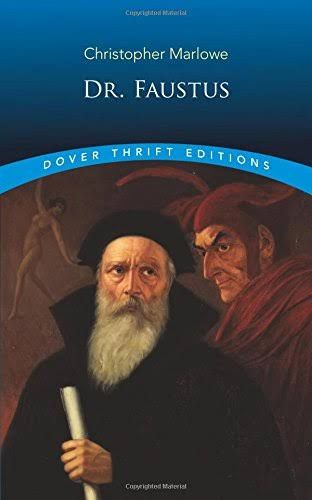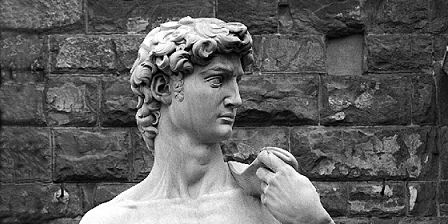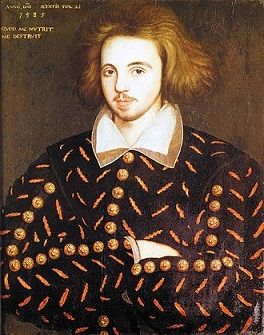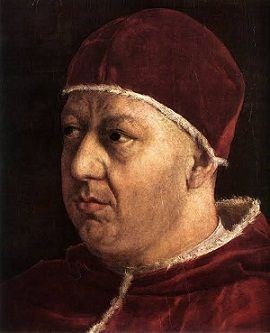Doctor Faustus
Sep 25, 2019 • 181 views
Introduction to the Play
Summary and Characteristics
Doctor Faustus is an Elizabethan tragedy by Christopher Marlowe, first said to be performed around 1604. The play is about ambition, knowledge and power with an undertone of politics and reformation. Digging deep, it reflects upon the human potentialities within the character of Faustus. Faustus comes as a product of renaissance. The story revolves about Faustus using Necromancy and giving his soul to Mephistopheles. The deal was that Faustus will get or do or achieve anything in the world for 24 years and after that his soul will belong to Lucifer, Ruler of hell.

The Book- Source: Google
Renaissance Period
Renaissance period spreads from 14th century to 17th century in the European history. It is marked by the revival of classics and the birth of individualism. Science and religion are actively transformed, as both nature and god become more accessible to immediate experience of individuals. It was shortly followed by the protestant reformation. Renaissance mood of aspiration is characterised by the humanist movement and the man-centric word. Man went in the search for their true identity and the purpose of their life. The humanist movement made man realize his true potentials and made him understand his past. It also established the superiority of man over the other creatures of the earth. And hence, opened doors for innovation and knowledge. Faustus opens the play as the perfect renaissance man, on the brink of great enterprises.

Human at centre in Renaissance- Source: Compuware
About the Author
Biography and Time period
Christopher Marlowe (26 February 1564 – 30 May 1593) was the foremost Elizabethan tragedian. He was an English Playwright and poet of Elizabethan era. Blank verses and the overreaching protagonists were the prime characteristics of Marlowe’s work. He greatly influenced William Shakespeare. He also did translations to some famous literary works such as Ovid’s ‘Amores’.

The Playwright- Source: Wikipedia
Themes Highlighted
Education and Limitless Knowledge
Education had a significant role in the renaissance time period. It was considered as a tool or a weapon to acquire immense power. With limitless knowledge comes immense power and so there was this effort to transcend the human boundaries for the unfathomable power. Thus, Dr Faustus’s character is built up to be a great scholar, a professor in a university. He got degree of doctorate in divinity from the Wittenberg University. He knew about various fields like Analytics, Law, Medicine, and Divinity yet there was this desire for more knowledge. In the prologue and act 1 scene 1 it is shown how Faustus has acquired all the knowledge in his range. He goes and explores and the fields of Necromancy, Black magic and Metaphysics. He wants to know the secrets and the unknowns. Faustus’s thirst for knowledge does not let him acquire wisdom. Dr Faustus here represent the spirit of adventure and craze for limitless knowledge.
Against the norms of Christianity
Dr Faustus comes across as a challenger to the norms of Christianity. He seeks to achieve godhood himself, leaving behind the Christian conceptions of human limitations. He wanted to conjure spirits and ask them to “bring pleasant fruits and princely delicacies” from all over the world. He wanted to control “all things that move between the quite poles. “Faustus can be seen as a person full of pride and according to the Christian norms, pride gives rise to all the other sins and the person is damned eternally.

Pope and Catholic Norms - Source : Google
Politics of religion
The politics of region are seen. This was a part of the protestant reformation where people were questioning the church authorities. Anti-Catholic ideas were doing rounds at the time period to support the Protestantism movement. Dr. Faustus was indulged in black magic and Necromancy and all the anti-Christian methods. He started believing there is only “despair in God”. Faustus driven by ambition sells his soul to lucifer. His behaviour towards Pope is also seen as his loyalty towards Protestantism. He appears to be a true renaissance man who would revolt against any norms that did not made sense. His belief is strengthened when he sees that the pope cannot even distinguish between a good soul and a bad soul.
Human Potentialities
Even though Faustus sold his soul to the Devil, he was still a man of full human potentials. His true self or his identity survived till the very end were he even asked for mercy. There are many examples to prove his potentials. One of the many examples is his dilemma of selling the soul to lucifer which stayed till the end. His conscience was constantly there to remind him of the dangers and the damnation. Even after selling his soul, there were recurrences of regret and thoughts of returning to god. His potential lies in the desire to get grace from god. Marlowe represents the turmoil of Faustus’s mind is dramatized through his soliloquies. The presence of good and bad angel represents his choices and the tussle between his conscience and sub-conscience. They come at several instances reflecting about the deferent choices he can make either to redeem himself or to give in to the devil. The fact that he can still choose between the good and bad paths shows he is not completely devoid of human emotions. At first Faustus made demands only to satiate his yearn for knowledge or to get gold or pearls or to know the secrets of the kings. These all represent the demands that are not extraordinary or evil to humans. He also used his necromancy skills to free Bruno and sent him to Germany. The fact that he thought of saving a man’s soul reflects the human emotion of empathy.

Renaissance Humanism – Source: Wikipedia
Citations from essay
By Robert N. Watson
In the essay “A Theory of Renaissance Tragedy: Dr Faustus”. He says “Faustus is even a reformer, using his omnipotent book to attack the Pope and refute the power of Catholic rituals.”
Personal Review and Opinions
This was another book which was in my university syllabus. The eponymous title of the book was intriguing and reminded me of Shakespeare’s works. It was after reading and researching about it I realised Marlowe was the one who inspired Shakespeare. The book reflects upon major themes which are relevant in todays time as well. The protagonist is portrayed as an anti-hero and not a villain. The relatability to the main character with his ambition, human emotions, hunger for knowledge, etc was very much. The playwright as well as the drama is critically acclaimed and considered one of the great literary works.
Want to read more? Here- https://wrytin.com/maryarizwan/indian-english-poetry-k12dg60h
